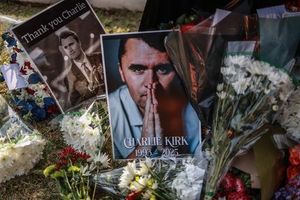Young People Fuel Hope Amid Frustrations at UN Climate Talks
Delegates face significant challenges as youth activists demand action and recognition
BAKU, Azerbaijan — Youth activists at the United Nations climate talks are expressing frustration and anger over the lack of action on climate change, yet they refuse to lose hope. Their experiences with the severe impacts of climate change—losses of homes, family farms, and even loved ones—shape their demands during the discussions happening at COP29.
For many young attendees, like Marinel Ubaldo from the Philippines, this gathering marks her sixth COP. At just 16, she hoped for significant changes after witnessing two devastating super typhoons destroy her community and displace her from school. Now 27, Ubaldo feels the burden of being termed as just the "poster child" for climate action, voicing her weariness of returning year after year without seeing impactful changes. "I guess I'm very pessimistic, but I’m going to be positive this COP could actually bring more clarity," she shared.
The anguish among youth is palpable, with many expressing concern over the growing disparities and lack of sufficient responses from world leaders. Each successive conference has seen the severity of climate change increase, yet many policymakers seem disengaged. Notably, attendance from key leaders dwindled at COP29, raising alarms about the political will to tackle the pressing climate crisis.
Fathimath Raaia Shareef, 20, hailing from the Maldives, encapsulates the urgency felt by many youth from climate-vulnerable nations. Her plight—having never visited her family's native island due to rising sea levels—fuels her insistence on being vocal about climate issues. She disclosed, "For many young people from extremely climate vulnerable nations, it doesn’t feel like much of a choice" to advocate for climate action.
At the heart of youth activism during these climate conferences is their longing for genuine inclusion in decision-making processes. Felipe Paullier, assistant secretary general for youth affairs within the UN, acknowledges the struggle of young activists being sidelined during discussions. "We have this constant challenge of having sometimes the youth forums with spaces at the margins of the decision-maker spaces," Paullier remarked.
Echoing this sentiment, UNICEF’s Kitty van der Heijden noted, "We are simply not doing good enough for children in this world. We are failing children," implying the disproportionate impacts of climate change on youth, who face heightened risks of health issues, malnutrition, and severe climate events. The constant threat of climate change doesn't just disrupt their present; it jeopardizes their future.
What drives these young voices to persist through the exasperation is their resilience and determination. Despite the dampened spirits stemming from repeated failures to enact substantial climate legislation after so many years of pleas, their collective aim remains fueled by hope.
The youth are increasingly banding together, organizing protests and delivering poignant speeches as they articulate their experiences and demands. This year’s COP is again overshadowed by stricter controls on protests and tighter restrictions aimed at suppressing dissenting voices, particularly as the event takes place under the watchful eyes of authorities.
Many activists feel overwhelmed by the reality of their predicament. “It has become so tiring for me to be just a poster child,” Ubaldo's words resonate with countless others lacking visibility or channels for their concerns. Each young voice carries the weight of their communities, wishing for recognition and action on the issues they face daily.
Despite the exhaustion, the spirit of activism remains strong—energized by social media platforms and global networks, young climate advocates are taking to these platforms to galvanize support, share stories, and connect with peers across the globe. The laughter of shared burdens can often be heard amid the seriousness of their endeavors.
Yet, behind the passion, frustration simmers. Activists are feeling the compound pressures of climate impact and political stagnation as they navigate against the backdrop of this summit. COP29 has brought forth debates about financing strategies, countries' commitments to maintain emissions ceilings, and steps toward sustainability—but many attendees feel unequipped to engage meaningfully.
Leadership circles often seem to miss the mark. Each year, youth gather, bringing forth their narratives—stories shaped by loss, resilience, and hope. Each COP has seen their messages fall short of yielding immediate action, reminiscent of the growing disconnect between the promise of commitments and the ground reality faced by generations impacted by climate variability.
The dialogue surrounding youth participation at global treasury tables is pivotal. Increasingly, it’s recognized not merely as advocacy but as necessity. The integration of youth strategies among broader climate resilience efforts offers new avenues for discussing solutions, particularly when navigated through lenses of equity and urgency.
While it’s evident the struggles persist, several young leaders are emphasizing the importance of intergenerational discussions and collaborations. Bringing older generations and youth together helps bridge the gap, allowing for collective strategies to emerge as they tackle the pressing climate issue moving forward.
While feelings of despair might loom, those present at COP29 attempt to turn their frustrations inward to trigger motivation, ensuring their voices echo far beyond the confines of the conference. For these youth, hope is not simply out of reach; it’s formulated through activism, education, and advocacy shaping their narrative about climate justice.
What cannot go unnoticed is the inspiring determination formed among youth activists as they step forward, speaking their truths. They are challenging norms, advocating for their place at the table, and carving out spaces within the US, Europe, and other regions to remind leaders of the climate crisis consequences they are left to grapple with. After all, the future they are fighting for is the one they will inherit.



